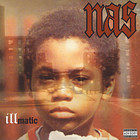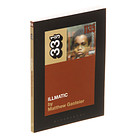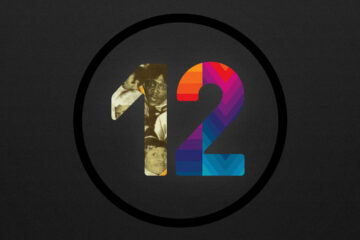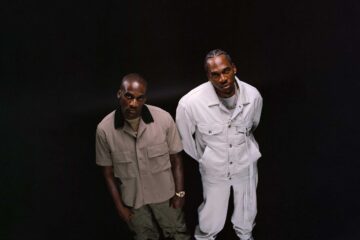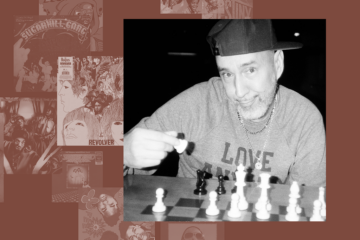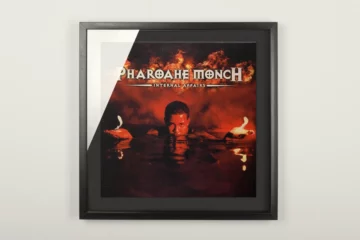On 23 May 1992, Nasir bin Olu Dara Jones, better known as Nas, planned on enjoying a relaxed evening in the cinema. »Alien III« had just been released, and the film had only opened the day before. But long after the curtain came down and he and his friends were on their way back to the Queensbridge Projects, an argument broke out and shots were fired. The bitter result: one wounded, his younger brother Jabari. And one dead, his neighbour and best friend William »Ill Will« Graham. The utopia did not come true in the film or in the Queensbridge Projects, the largest public housing project in New York City: where people are ghettoised, evil lives.
Nas, who had been raised alone by his mother since the age of 13, was only 18 at the time. He had dropped out of school years before. With Will as his DJ, he took his first steps into rap. But now he had to go it alone. Nas believed in his talent and made connections. In the projects, as the one address in the legendary Queensbridge-South Bronx battle, they were available in abundance, like in the form of the producer Large Professor. He introduced Nas to his band Main Source and Nas was allowed to deliver a feature on their LP »Breaking Atoms«. And did he deliver. Nas garnered attention that wouldn’t go away. One thing led to another, from Large Professor to MC Serch and from »Live At The Barbecue« to »Back To The Grill Again«—and after the major labels where he’d presented his demos, including Def Jam, failed to offer him a contract for his debut album, he went to Colombia, with the help of MC Serch.
Hope glimmers through the dust on the street. At one point it appears as a trumpet solo, played by Nas’ father. Nas told him to play whatever came to mind when thinking of Nas as a boy.
By this time, Nas’ friends included Q-Tip and Pete Rock, as well as Serch and Large Professor. With the addition of DJ Premier, whom he also met through MC Serch, Nas had the Who’s Who of the New York production scene backing him for his album. And they were hot, because Nas’ talent was undeniable—and had long been the talk of the town. Everyone sensed that they were working on something big with »Illmatic«.
What everyone knows today was also clear back then: »Illmatic became something big. A sharply observed street ballad with hungry, powerful and precise raps that conjures up images, comparisons and moods that broke new narrative ground in rap. He rapped with the dignity of a seasoned MC—and the anger and angst of a disenfranchised teenager left to his own devices who looks deep and lets you see. »Illmatic« delivers somersaulting gutter poetry as intense street reporting. Delivered with infectious urgency and simmering serenity, the record paints a striking mood picture of a neglected urban enclave, stirring yet hopeful.
Yes, hope shines through the kicked-up dust on the streets. At one point it appears as a trumpet solo, played by Nas’ father, who at the time had been separated from his family for six years. Nas told him to play whatever came to mind when thinking of Nas as a boy.
When you listen to Nas, you’re damn close to the action, smack dab in the middle of it—as if you were one of the friends in prison to whom Nas sends letters in the verses on »One Love«.
A detail like that can be glorified wonderfully. But it is also one that helps turn the album into a masterpiece. Since its release in April 1994, five months before Nas’ 21st birthday, it’s something that everyone has long since agreed on. The Source gave it a full five Mics for the first time ever, and since then »Illmatic« has appeared on almost every important best-of list, with Kendrick Lamar, Busta Rhymes, Kool Savas, Alicia Keys, Erykah Badu and legions of others still raving about it today.
»Illmatic« has had a lasting impact on the entire rap language. Not only did Nas shine with a vocabulary that eschewed hackneyed filler phrases within his complexly arranged verses, he also proved his storytelling abilities. When you listen to Nas, you’re damn close to the action, smack dab in the middle of it—as if you were one of the friends in prison to whom Nas sends letters in the verses on »One Love«. »Plus, congratulations, you know you got a son. I heard he looks like ya, why don’t your lady write ya?«
There’s a reason why everyone can relate to Nas’ raps. According to American breakbeat poet Kevin Coval, »Illmatic« shows a hip-hop poet-reporter at work, while film scholar Sohail Daulatzai compares the LP to the world of cinema. Daulatzai says Illmatic reminds him of Gillo Pontecorvo’s incredible docudrama »The Battle of Algiers«, which blurs the lines between fiction and documented reality in a similarly powerful way. But hey, no matter how you look at it, there’s one thing everyone can agree on: »Illmatic« is a bloody good rap album, and for many, it’s the absolute best. Don’t believe me? Just ask Kendrick Lamar, Busta Rhymes, Kool Savas, Alicia Keys, Erykah Badu or a whole legion of others.


